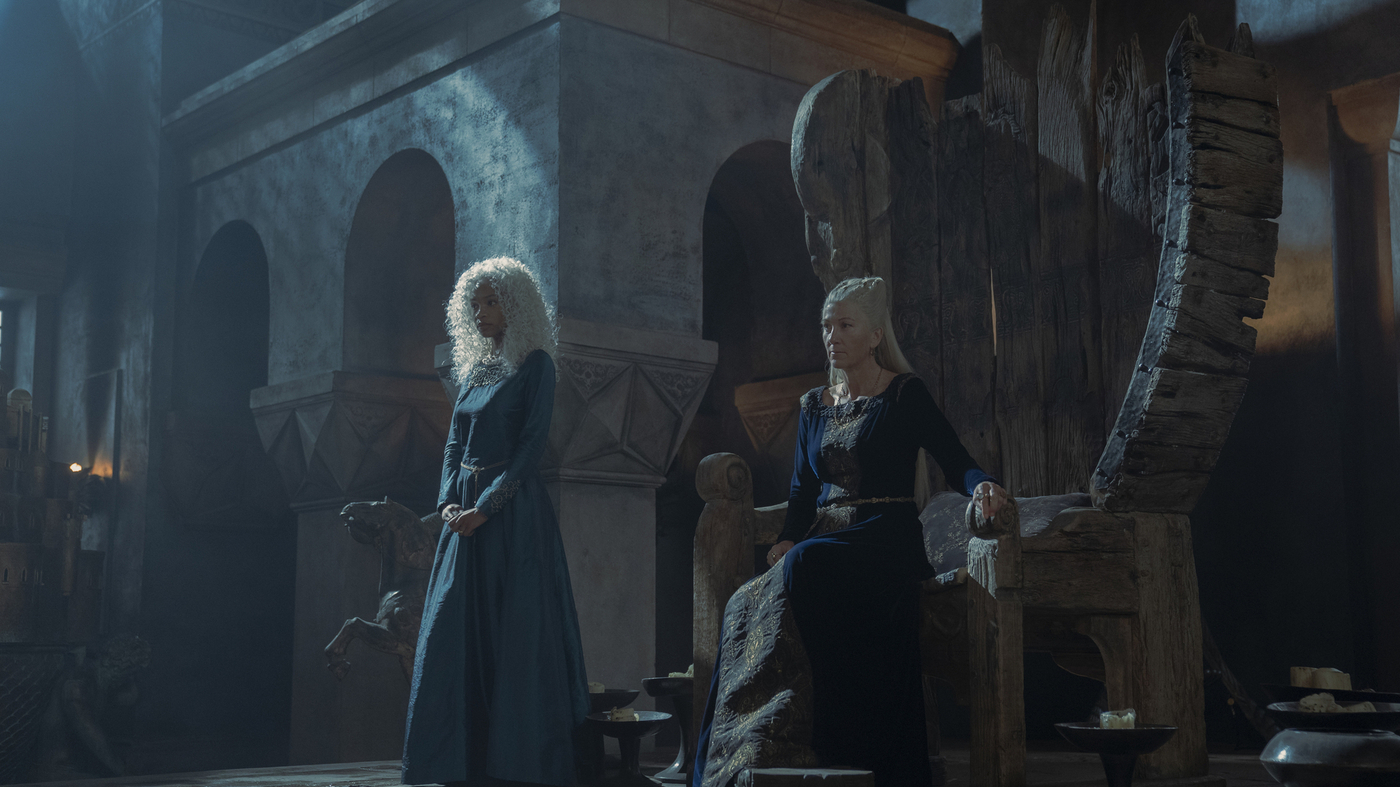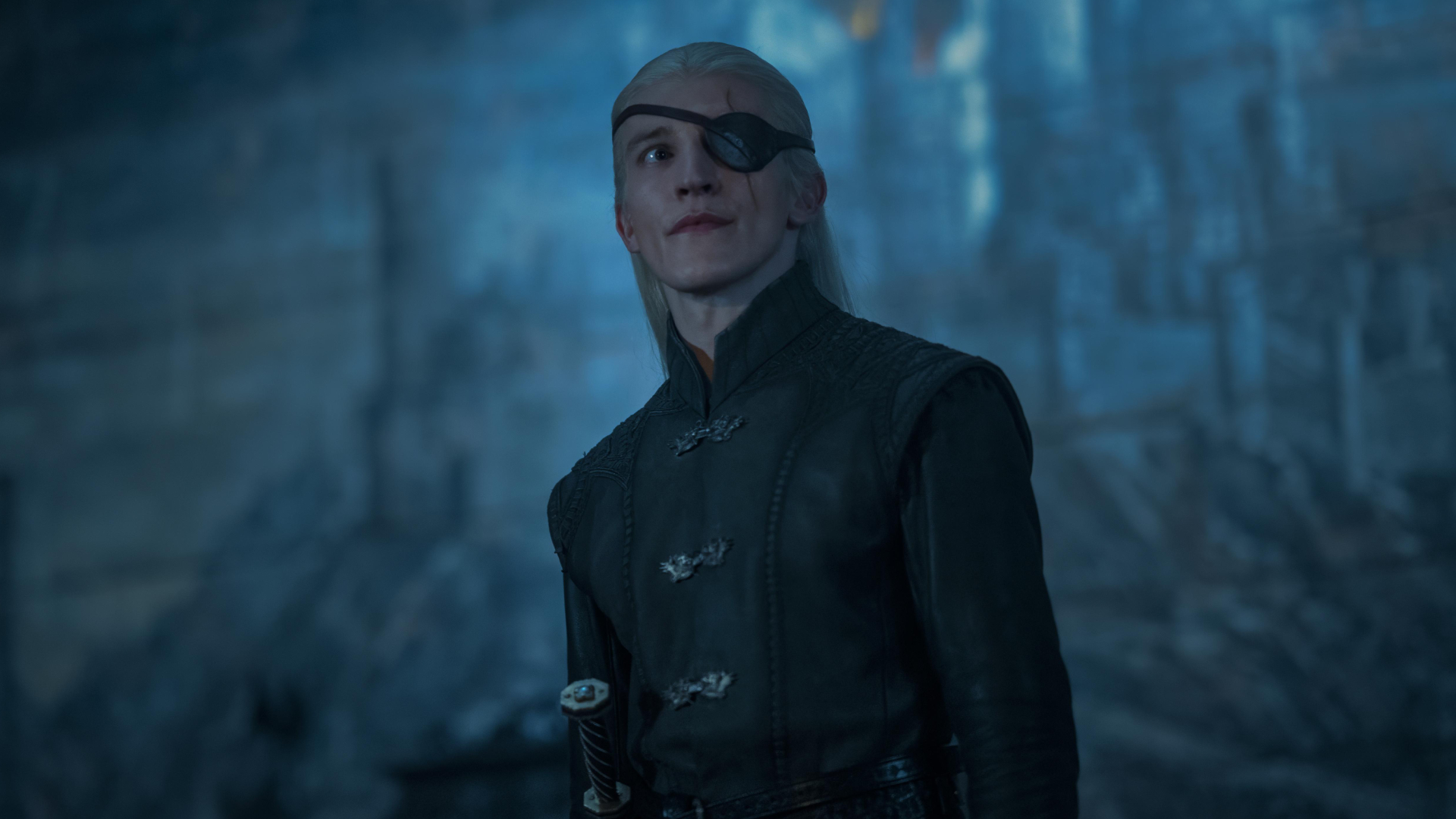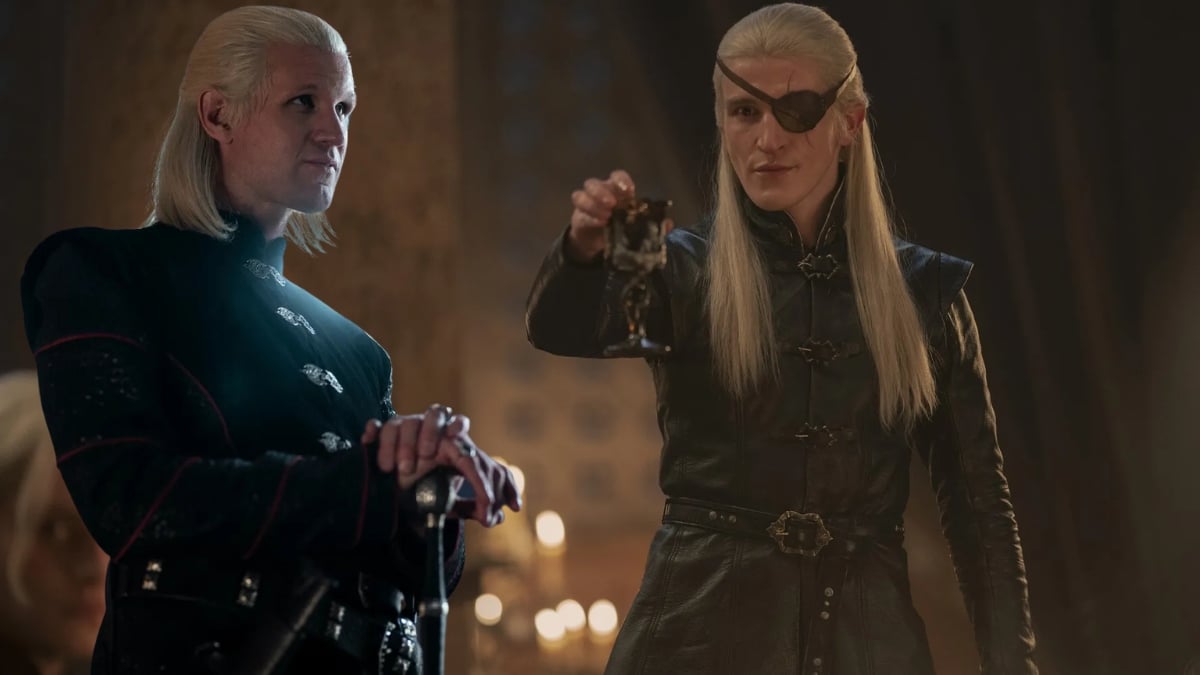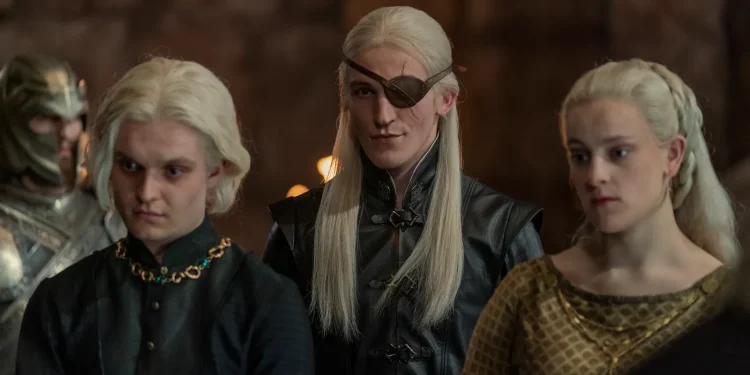In the fiery realms of Westeros, where dragons soar and betrayals burn deeper than dragonfire, “House of the Dragon” continues to captivate audiences with its complex characters and riveting plots. In a pivotal turn of events during Season 2, Episode 4, Ewan Mitchell, portraying Aemond Targaryen, offers a chilling performance that encapsulates the essence of vengeance and unresolved grudges.

A Vengeful Ascendancy
Ewan Mitchell’s Aemond Targaryen, once a young boy who bonded with the mighty dragon Vhagar, has now emerged as a formidable force in the brutal power struggles of the Targaryen dynasty. The episode shocks viewers as it culminates in the tragic demise of Rhaenys Targaryen, plummeting to her death, her dragon slain under Aemond’s command. While King’s Landing may cheer for another, it is Aemond who orchestrates the downfall of his foes, guided by a bitter memory and a quest for retribution.
In an introspective revelation with Total Film, Mitchell delves into Aemond’s psyche, tracing back his thirst for vengeance to a childhood scar—the loss of his eye. This injury, inflicted during a skirmish with his cousins from Team Black, was not just a physical wound but a moment of profound betrayal that no one, not even the adult witnesses, sought to mend.
“Aemond forgives, but he does not forget,” Mitchell explains. This statement becomes a chilling testament to his character’s journey. While Aemond had outwardly moved past the incident, internally, he harbored a growing storm of resentment, exacerbated by the silence and inactions of those around him.

The Unforgiving Storm
The complexities of Aemond’s character are further explored through his interactions and the subtle cues that hint at his internal conflicts. His actions in Episode 4 are a direct response to the injustices he felt were never rectified. The pivotal scene where he exacts his revenge is not just about the physical act of violence; it’s a manifestation of years of suppressed anger and a desperate need for acknowledgment.
Mitchell’s portrayal reveals that beneath the surface of Aemond’s calm demeanor lies a reservoir of pain and anger.
“What could have been resolved with simple words of apology was allowed to fester,” he remarks. This sentiment echoes throughout his narrative, portraying Aemond as a character who is both a victim and a perpetrator, entangled in a web of familial duty and personal vendetta.
As the series progresses, the consequences of Aemond’s actions promise to unfold further, likely bringing more turmoil and tragedy in their wake. His control over his dragon and the deliberate nature of his actions in Episode 4 suggest a man who is not only aware of his deeds but also unrepentant about the necessary cruelty of his choices.

A Tale of Dragons and Despair
“House of the Dragon” has masterfully woven a tale of intrigue and human complexity, with characters like Aemond Targaryen standing out as embodiments of the themes of power, revenge, and the haunting effects of unresolved conflicts. As viewers, we are left to ponder the moral ambiguities of his actions and the inevitable spiral of vengeance that seems to consume even the mightiest of Targaryens.
In the shadow of dragons, where the line between right and wrong blurs, Aemond’s story is a stark reminder of the deep scars that early betrayals can leave, shaping destinies and dragons alike.









